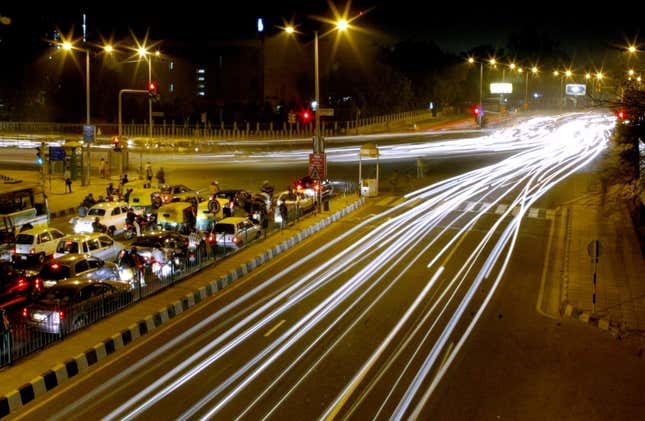Not so fast, bull market.
Earlier this week, president Pranab Mukherjee laid out Narendra Modi’s plans to reignite investment into India. But it is easier said than done.
A recent report by Credit Suisse says that markets have overestimated the powers of the central government. It pointed out that of the projects worth $1,391 billion that are under implementation, only those worth $351 billion have reached the central government for approval. The rest are stuck because either there are problems within respective organizations or these projects come under purview of state governments.
India’s benchmark equity indices are rising every day on expectation that the new government will boost spending and accelerate approvals for various projects. The Sensex has gained 20.83% since beginning of this year. The rally seems to be based on the belief that change is coming. But is it? “Earlier government failed to convey the message properly to public that the reason why projects are stuck is not in their control,” says Daljeet Kohli, research head for IndiaNivesh Securities. “What Narendra Modi is saying now is no different from what UPA government was saying. Both have stressed the importance of cooperation of states to put growth back on track.”
Two-thirds of the projects that are awaiting approval from central government are in power and steel sectors. Credit Suisse says reforming state electricity boards (SEB) and making coal available is crucial or else these projects will remain stuck.

The report says that there is little the central government can actually do to force banks to lend more to SEBs or to the states to reform their electricity boards. Analysts hope Modi will empower states—especially those ruled by the Bharatiya Janata Party—to implement reforms and fast-track investment. Mukherjee also said on Monday that the government will pursue reforms in the coal sector “with urgency for attracting private investment in a transparent manner.” This refers to a proposal to allow private firms into mining. But an increase in coal production is unlikely to happen till data on reserves in these mines is updated.
Credit Suisse estimates it would take at least two years for that to happen and another three to five years for mining to begin once coal is auctioned. The other two areas where the central government’s hands are tied are roads and highways. They both come under the purview of states. Amid a slowdown in growth, developers are backing off previously scheduled projects. Kohli of India Nivesh says: “With banks lending recklessly, many of these developers bid everything that came in their way without analyzing.”
Funny, you could say the same of bull investors today.



